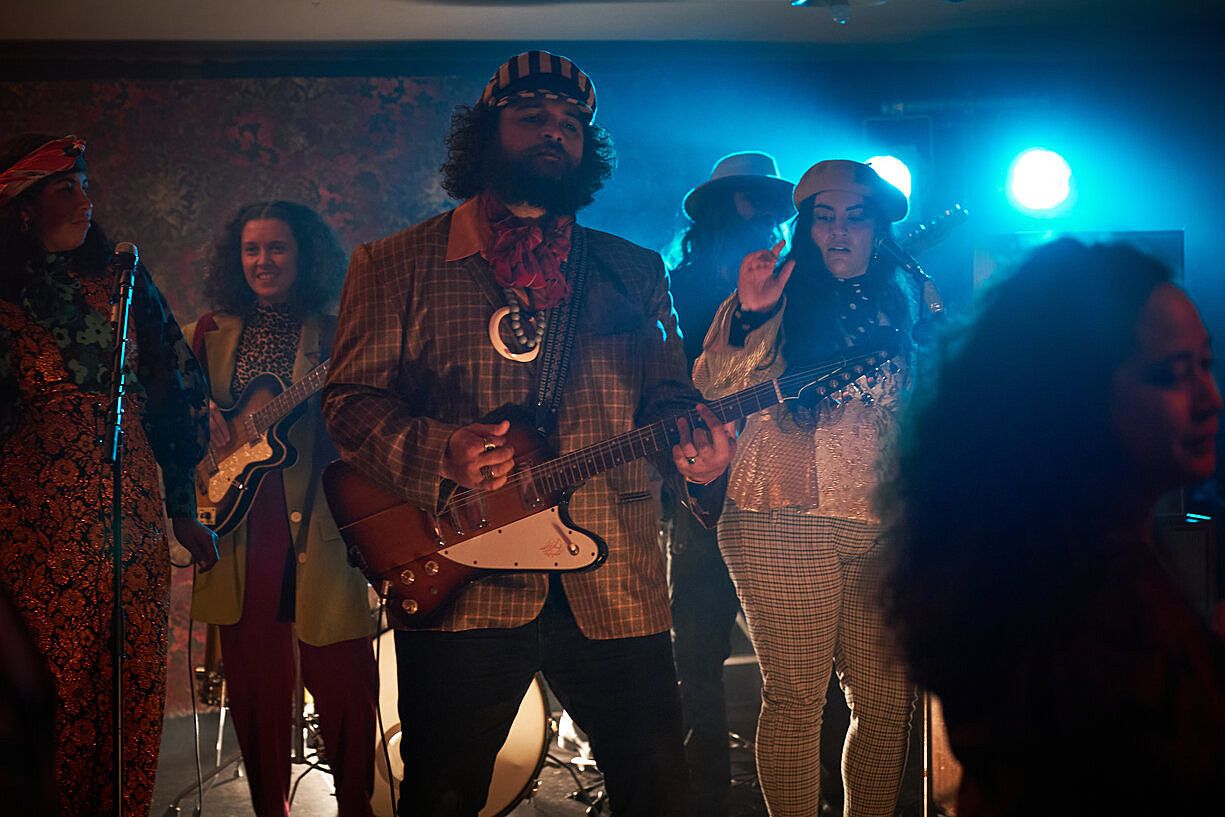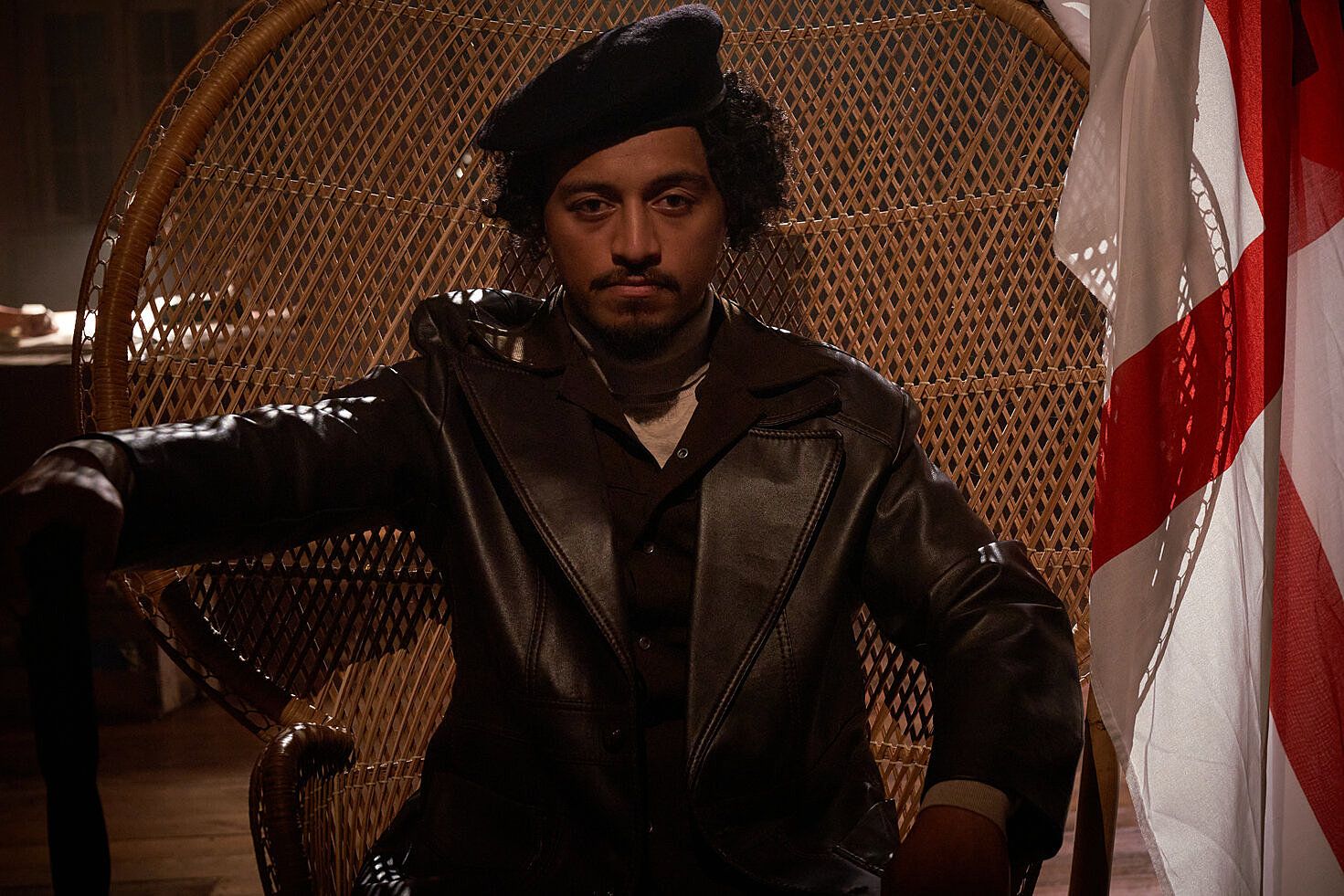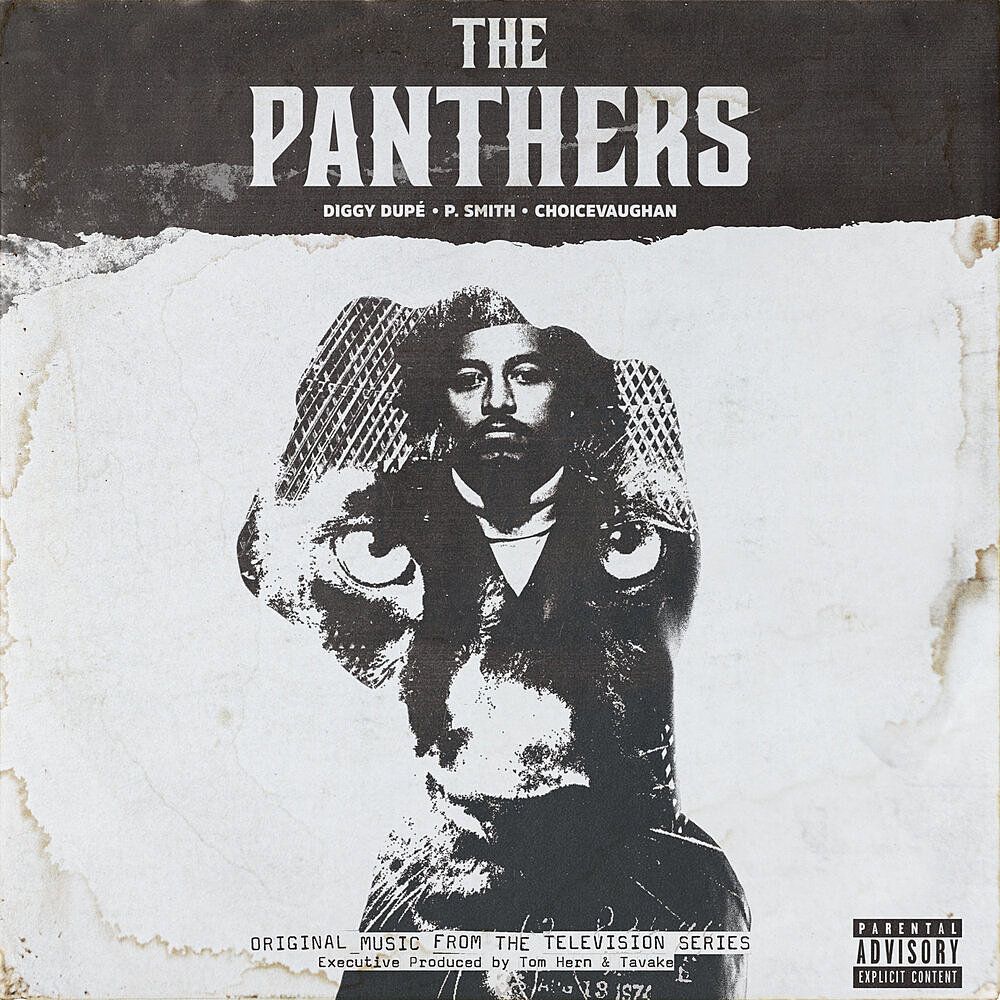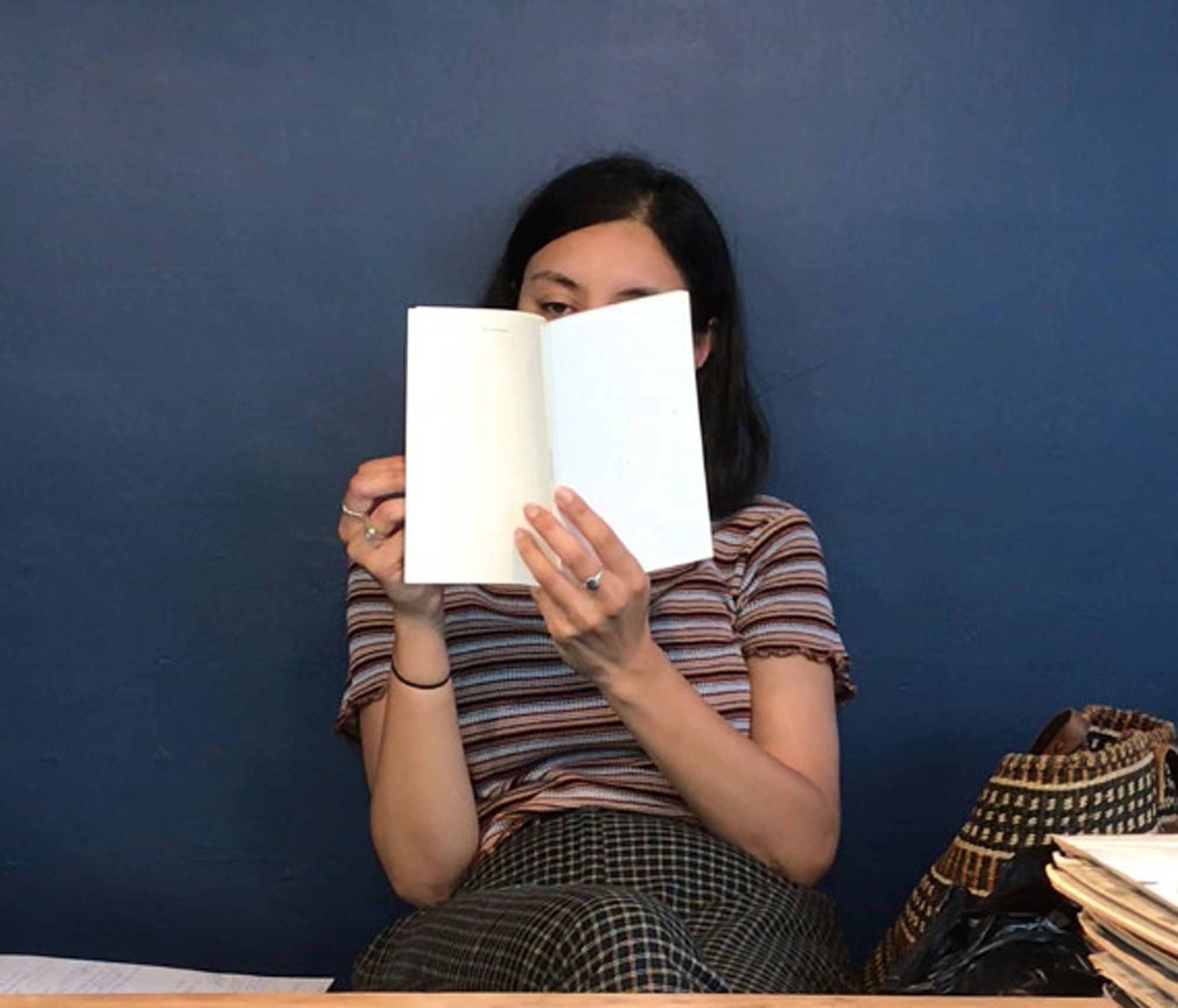After the Dawn: A Review of The Panthers soundtrack
Panther Cubs, the ‘OGs’ and a new wave of Aotearoa music talent collide in this soundtrack that transports across genre, generation and the Pasifika community’s solidarity.
The last two years have been turbulent for Pasifika peoples. Two historical events this year, the Prime Minister’s Dawn Raids apology and the Polynesian Panther Party’s 50th Anniversary, have been cause for celebration. But they’ve also caused us to reflect on the stigma we face as Pasifika peoples, one which has sewn itself into the fabric of our identity. On the heels of the apology came the timely release of a new six-part series, The Panthers, through TVNZ OnDemand.
Just days after the show was aired, however, Aotearoa went into Level 4 lockdown and, in a strange twist, Pasifika quickly became the scapegoats due to reports that they comprised the majority of cases in the new Delta outbreak. A resurgence of racial discrimination, fuelled by the media, reached boiling point with reports of the sub-standard treatment of Pasifika families in MIQ and vaccination facilities. The stigma rears its ugly head once again.
Watching The Panthers while in lockdown has helped to process this sequence of events. The historic weight of the series extends to the accompanying soundtrack, which works to further illustrate the racism facing Polynesians then and now. It transports us back and forth in time, allowing us to revisit the past through a contemporary lens.
The Panthers features original music by collaborators Diggy Dupé, choicevaughn, and Troy Kingi (under the alias P. Smith), who have worked closely with the show’s creators, Tom Hern and Nua Finau. The album also pairs young up-and-coming artists with more seasoned OGs, weaving them together within a shared legacy. A broad spectrum of musical genres evokes the 1970s but with a contemporary hip-hop feel throughout. From psychedelic rock and jazz to hard-hitting rap, it highlights the music that has inspired key movements with their messages of love, pain, hope and justice.
The show’s powerful theme song, ‘Welcome to CA’, evokes the psychedelic, 70s soul of the Panthers
The show’s powerful theme song, ‘Welcome to CA’, evokes the psychedelic, 70s soul of the Panthers, with producers Troy Kingi and choicevaughn providing a contrasting canvas for Niuean rapper Diggy Dupé’s vivid storytelling. The rapper’s opening command, "Respect my identity", prefaces the listener before teleporting us through his home of Central Auckland; listing neighbourhoods, street names, families and soul food (mince and cheese pie, Lu Sipi and cream-filled bread) as though he is zooming in on his DNA.
Those who have seen The Panthers will recall the unique way the music is presented in the series. Diggy frequently appears in the show to interpret pivotal moments, in the style of a Greek chorus. He seems to exist in a reality one step removed from the characters around him, piercing the fourth wall as he raps directly to the audience while the characters around him grapple with racism and police brutality. Not only does the soundtrack defy the period of the show, it also liberates the series from the narrative gaze we are accustomed to seeing on screen.
Troy Kingi (Te Arawa, Ngāpuhi, Te Whānau-ā-Apanui) also makes an appearance on the show, singing the profound opening refrain to ‘My Heart Never Sleeps’ with Donny Hathaway realness. Troy’s musical input is reminiscent of his album Shake That Skinny Ass All the Way to Zygertron (2017), from the 10/10/10 series (which has already won him a Taite Music Prize in 2020 and a finalist nomination in 2021). Here, his piano chords walk us through a home that is resilient as much as it is broken. Diggy’s verse packs the energy of a Panther’s raised fist, levelling the softness of Troy’s production with a tenacity of his own: “I’m Beth Heke. No fefe. We won’t lele.”
Diggy’s verse packs the energy of a Panther’s raised fist: “I’m Beth Heke. No fefe. We won’t lele.”
*
Diggy often weaves together English and Pasifika languages in his music. On the single ‘Keke Boy’ from his debut album That's Me, That's Team (2020), Diggy switches unapologetically between Niuean and English. His technique reflects the way younger generations often skilfully navigate both languages daily – and the sense of pride we have in being able to do so.
On the poignant track ‘Ulu Up’ he dips into Sāmoan while Rizvan delivers well-crafted bars with the wisdom of an older cousin, nailing syllables into a poetic flow. The song is produced by choicevaughn, who is noted for his EP Deuce (2020), a joint release with Tom Scott of Avantdale Bowling Club. On the sublime jazz medley ‘Kong’, Diggy reverts to Tongan, with an appearance from MELODOWNZ speaking about the fallibility of being human whilst striving to take the moral high ground.
Diggy speaks from multiple perspectives, such as Will ‘Ilolahia in ‘Kong’, and Robert Muldoon on the standout track ‘The Villain’ featuring SWIDT. Choicevaughn’s menacing bassline evokes an image of police prowling neighborhoods during the Dawn Raids. Diggy showcases his creativity in his portrayal of Muldoon, who serves as the main villain in the series. The song forces us, the audience, to contend with the dual aspects of good and bad within ourselves – and as victims of a system that makes us out to be the villains.
Kapisi passes the rākau around the next wave of talent before proceeding to school us with some of the freshest bars of his own
The album’s male-dominated rap contingent is offset by a number of R&B ballads that mirror the show’s love stories. ‘Ain’t the Same’, feat. MELODOWNZ and Summer Vaha‘akolo, represents the fraught romance between Will and Tessa, while ‘Must Seem Popular’ features a stunning performance from veteran singer Bella Kalolo, followed by the heart-rending ‘All for Show’, feat. Sam V and JARNA.
A unique moment on the album comes with beloved Aotearoa hip-hop ‘OGs’ Che Fu and King Kapisi. Che is a household name and also a Panther Cub; his parents Tigilau and Miriama Ness were both Panthers and are portrayed in the series. On the allegorical tune ‘Before the Dawn’ he imparts wisdom to his young understudies. Likewise, ‘Cypher’ honours the battle roots of hip hop and Kapisi’s immigrant lineage. Kapisi passes the rākau around the next wave of Aotearoa talent before proceeding to school us with some of the freshest bars of his own. The line “Never catch a coloniser in my cypher” reiterates that this is a closed forum of Polynesian brothers speaking unreservedly; steel sharpening steel.
Newcomer Ranuimarz further shines on uplifting jazz mash-up ‘Doubt’, skilfully taking us through the struggle of life in the trenches in his signature raw style, as heard on his EP Ranuimarz (2020). While rap/electronic MC Deadforest delivers more of his effortless Harlem-esque swagger on the braggadocious track ‘Make Way’.
MC Deadforest delivers more of his effortless Harlem-esque swagger on the braggadocious track ‘Make Way’
The album’s pensive finale ‘Last of a Dying Breed’ ends on a staunch note. Diggy elaborates on the strife those who still live in the neighbourhoods of Grey Lynn and Ponsonby constantly face; gentrification, isolation and distrust. Here the talented rapper comes full circle with a story about dealing with the forces of change, and trying his best not to let it force him out.
The series is a distant cousin of recent films Judas and the Black Messiah (2021) and Black Panther (2018), whose soundtracks merge timelines like whakapapa. Similarly, The Panthers teaches us what school didn’t – but from inside a warm fale; a familiar space where we can reconnect with our past.
Despite this year’s triggering events, the Pasifika community’s solidarity at a grassroots level has been restorative. Whether spreading awareness (and laughs) on social media, organising food banks or administering vaccines in South Auckland, our community has shown that what began with the Polynesian Panthers continues today.
*
The Panthers soundtrack is available on major streaming services.




